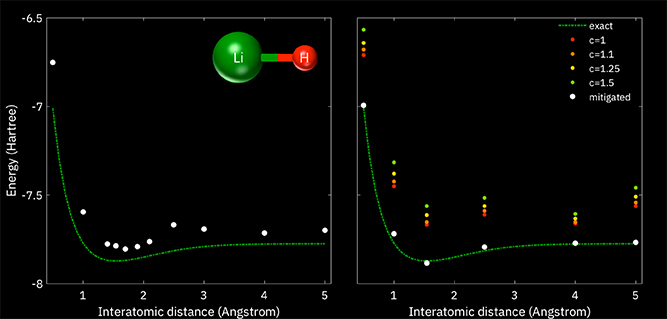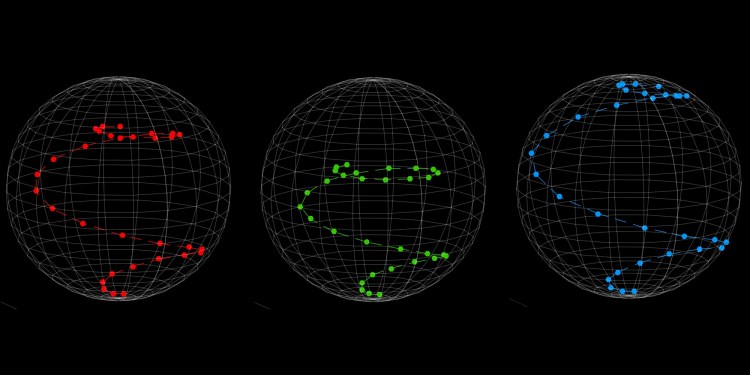IBM has developed a technique dubbed “zero-noise extrapolation” that mitigates the noise of quantum computations. It might seem counterintuitive, but by repeating the computation at varying levels of noise, IBM scientists can estimate what a quantum computer would calculate in the absence of noise. The error mitigation technique improves the results of any algorithm run on today’s IBM Q systems, according to their Nature paper titled “Extending the computational reach of a noisy superconducting quantum processor.”
Binary digits (bits) are the basic units of information in classical computing, while quantum bits (qubits) make up quantum computing. Bits are always in a state of 0 or 1, while qubits can be in a state of 0, 1, or a superposition of the two. Quantum computing leverages qubits to perform computations that would be much more difficult for a classical computer. But today’s physical quantum computers are very noisy, which leads to computation errors, and there are still no commercially useful algorithms published for them.
Mitigating errors and reducing noise is thus key to improving the usefulness of quantum computers. IBM says its “noise amplification” technique improves the accuracy of quantum computations, including machine learning experiments like the one outlined last week. Most importantly, this is all achieved without requiring hardware improvements.
Zero-noise extrapolation
Here is how zero-noise extrapolation works. IBM’s scientists say they have found that repeating a given computation at varying levels of noise lets them estimate what the quantum computer would calculate in the absence of noise. Specifically, the microwave pulses used to perform quantum operations on the qubits are “stretched in time” to controllably amplify the noise.
June 5th: The AI Audit in NYC
Join us next week in NYC to engage with top executive leaders, delving into strategies for auditing AI models to ensure fairness, optimal performance, and ethical compliance across diverse organizations. Secure your attendance for this exclusive invite-only event.
Computations on noisy quantum hardware are limited by the competition between decoherence (the loss of quantum coherence, or of information from a system into the environment) and circuit depth (a measure of the number of sequential operations performed on the processor). Increasing circuit depth can help create a more complex quantum state but typically implies increased errors from decoherence. The zero-noise extrapolation technique mitigates the effect of decoherence while accessing more complex and accurate computations that benefit from increased circuit depth.

Above: The experimental data (white circles) are compared with the exact energy curve (green dotted line). The left panel shows the results from the 2017 paper and the right panel depicts results from the 2019 paper. In the right panel, the error-mitigated estimates (white circles) are obtained by an extrapolation of results from experiments of varying noise (colored circles) and display far superior accuracies, without significant hardware improvements to the processors used for these computations.
Zero-noise extrapolation can be used to improve any quantum computation that relies on expectation values, IBM’s scientists claim. In their paper, they demonstrated improvements in the accuracy of quantum simulations from their 2017 Nature study “Hardware-efficient variational quantum eigensolver for small molecules and quantum magnets” and enhanced the success of binary classification problems from their Nature paper earlier this month “Supervised learning with quantum enhanced feature spaces.”
That said, they concede the improvements “are not indefinite and are ultimately limited by the coherence properties of the processor.” Counterintuitive or not, adding noise to reduce noise can only go so far.


